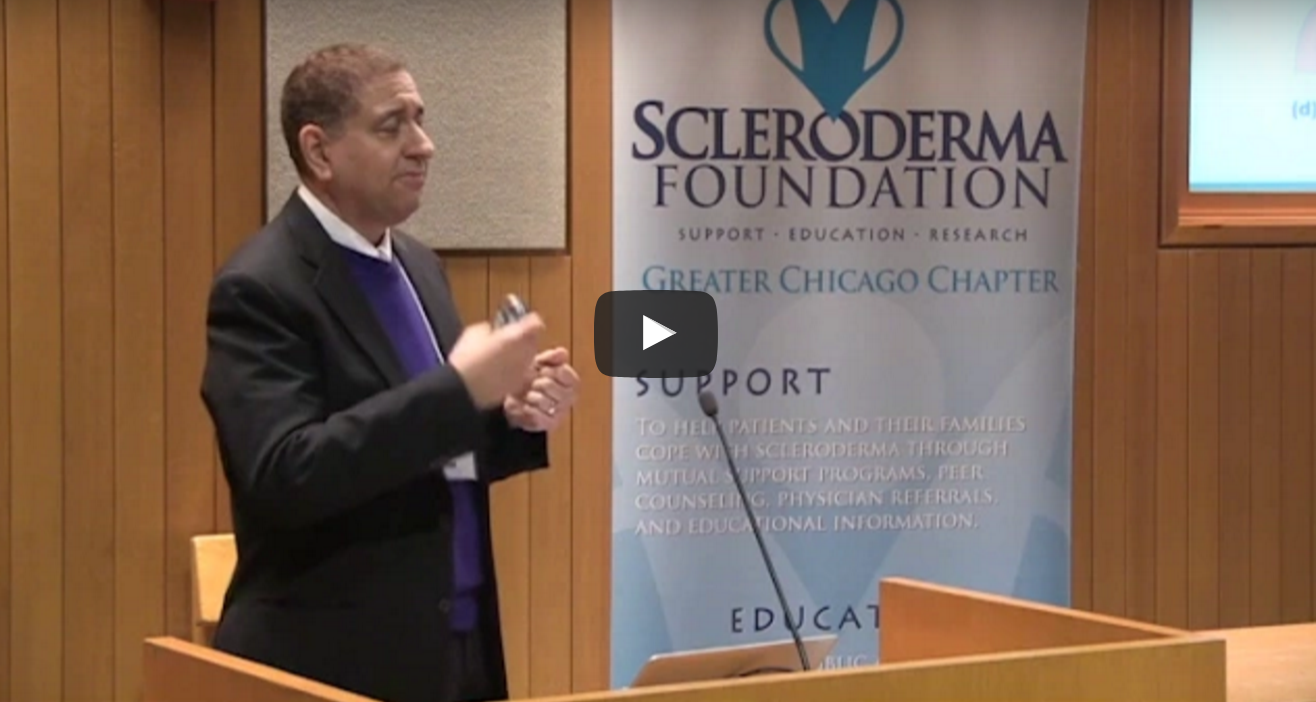How Scleroderma Affects the Gastrointestinal System

This video from the Scleroderma Foundation, Greater Chicago Chapter features the presentation Dr. Michael Brown made at the Scleroderma Patient Education Conference in Oakbrook, IL in April 2017.
MORE: The effects of living with scleroderma
Dr. Brown explains how it’s important that people with scleroderma look after their GI tract and get treated early for any issues they may encounter. Involvement in the GI tract in scleroderma patients can occur anywhere from the mouth to the anus and many report problems such as acid reflux and difficulty swallowing.
He talks about some of the complications associated with acid reflux including tooth enamel erosion, sinusitis, changes in voice, ear infections, ulcers, chronic cough and excessive throat clearing.
Some of the other stomach problems commonly encountered in scleroderma patients include bloating, heartburn, nausea, vomiting, belching, weight loss, fatigue, poor stomach emptying, malabsorption of food, and bacterial overgrowth.
MORE: How to deal with scleroderma-related GERD
Scleroderma News is strictly a news and information website about the disease. It does not provide medical advice, diagnosis or treatment. This content is not intended to be a substitute for professional medical advice, diagnosis, or treatment. Always seek the advice of your physician or other qualified health provider with any questions you may have regarding a medical condition. Never disregard professional medical advice or delay in seeking it because of something you have read on this website.






